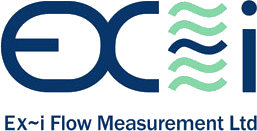Across the UK, there are thousands of tankers on the road at any one time; each carries on average 22000 litres of fuel. There is a flow of liquid from the manufacturer to the storage facility and then from the supplier to the forecourt client.
Flow measurement is essential in the passing of custody of the product between each part of this supply chain. What was once done with a dipstick is now measured with a calibrated meter within the tanker.
Truck loading systems
A truck loading system is used to transfer the refined products into the road, rail or ship tanker, which is known as custody transfer. Typically, a loading system uses two hose connectors, one that loads the liquid product and the other to collect the fumes that come out of the truck as the delivered fuel is replacing them.
While there are many different metering controls in this transfer process, flow measurement ensures high accuracy of measurement and allows for custody transfer approvals to be recorded. For most trucks travelling to the EU, the measuring system requires an MI-005 approval.
The Consumer Protection from Unfair Trading Regulations 2008 offers legal protection, making it an offence to give misleading statements about price charges. Therefore, measuring flow and ensuring the amount delivered corresponds to the amount charged is essential under law. In the UK, flow measurement devices must meet the demands outlined by the National Weights and Measures Laboratory in London.
Custody transfer flow measurement
While it is a matter of law, accurate flow measurement is also critical to determine how much fuel is purchased or how much is delivered. Fuels, such as oil, are delivered in bulk by the litre. Therefore, It is essential to determine flow rate, and then through calculations of flow, volume, speed or mass, the flow computer gives a precise measurement of the oil delivered. The term ‘fiscal metering’ is often used as an alternative to custody transfer, so the process is perceived to be a commercial transaction.
A petrol tanker delivering fuel to a forecourt, carrying 3000 litres plus, has a cargo of nearly £500 when full. Therefore, each inaccuracy of delivery of 1% costs the company £50 a time. Consider this 1% inaccuracy across a relatively small fleet of 15 tankers with each delivery run and then expand this over a financial year.
The volume transfer tolerance of a flow meter is generally within 0.3% tolerance. Consequently, there is a significant return on any investment in flow measurement technology.
Guaranteeing accurate flow measurement
In short, the use of flow measurement in fuel tankers is vital to the accuracy of billing and the maximising of profits. The flow meter itself is only one component in a system that ensures the necessary standards. A flow computer is needed to receive and process the data from the meter – which will ultimately support automated truck loading systems that are becoming common practice in the delivery of fuels.
Ex~i Flow’s flow computer is essential in flow measurement, ensuring the accuracy and precision needed when completing custody transfer. Contact us today to hear more about flow measurement with Exi Flow.

